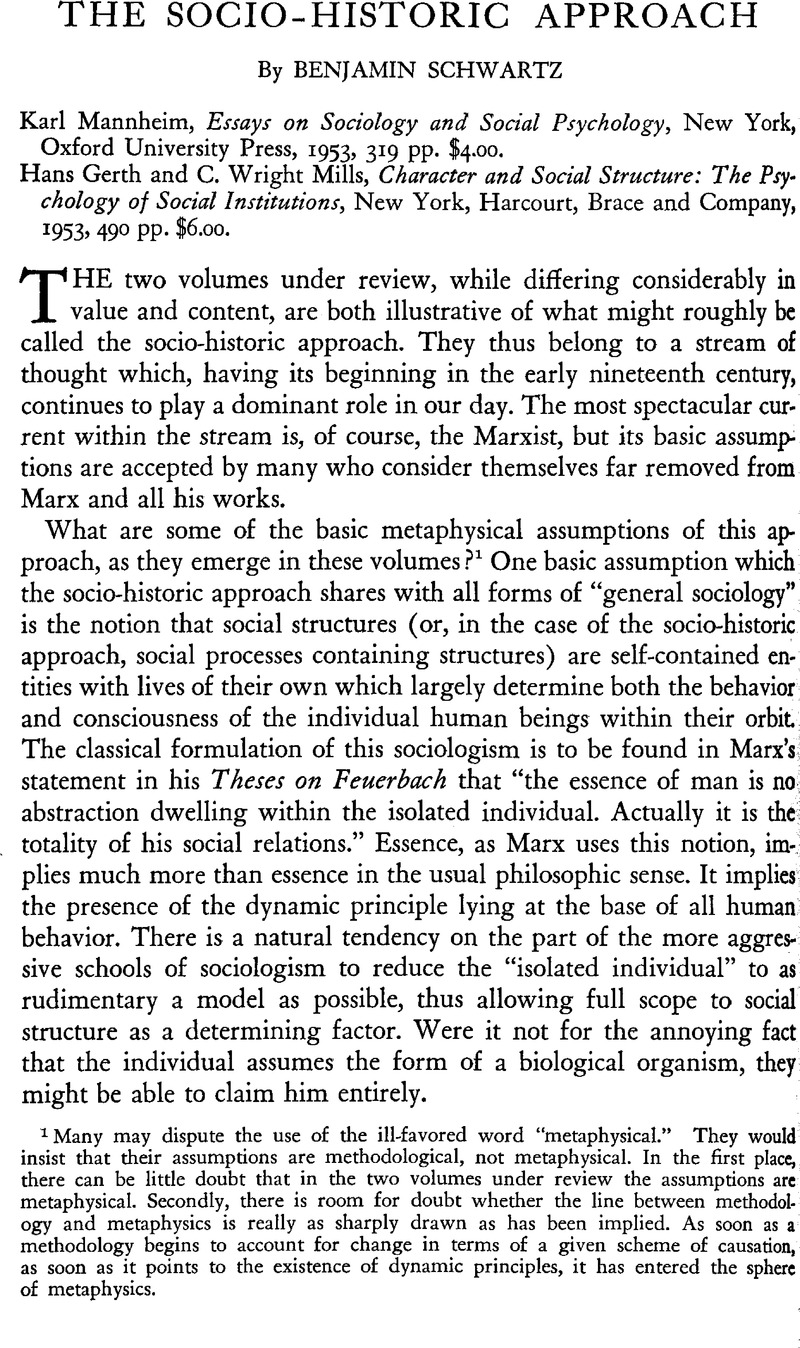Published online by Cambridge University Press: 18 July 2011

1 Many may dispute the use of the ill-favored word “metaphysical.” They would insist that their assumptions are methodological, not metaphysical. In the first place, there can be little doubt that in the two volumes under review the assumptions are metaphysical. Secondly, there is room for doubt whemer the line between methodology and metaphysics is really as sharply drawn as has been implied. As soon as a methodology begins to account for change in terms of a given scheme of causation, as soon as it points to the existence of dynamic principles, it has entered the sphere of metaphysics.
2 In discussing the whole matter of planning, there is no intention here of implying any view on the issue of economic planning. Mannheim's conception of total socio-psychological planning is a conception of quite a different order.
3 Moreover, the issue is not that of the relative role of the individual or the group. It is obvious, of course, that many aspects of man's social life could only have been produced collectively. In the socio-historic approach, the groups are just as helpless as the individual. They are also merely instruments of social structures and social processes.